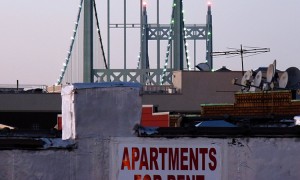Breaking a lease in NYC is probably the last thing that people that move here ever think they’ll have to do. But life happens, and there may come a time when a renter will have to break a lease. If you ever find yourself in this situation, it’s a good idea to know your rights and obligations.
Check Your Lease for Early-Release Clauses
Many standard boilerplate leases don’t mention anything about what happens when a tenant leaves a lease early, but some landlords do have early-release clauses. These clauses usually say that if a tenant leaves an apartment before the lease is up, the tenant will have to pay one or two months‘ extra rent or give the landlord one or two month’s advance notice (in order to cover the period of time it will take the landlord to look for another tenant). It could also say that the tenant will have to pay the rent until a new tenant is found, even if that process ends up taking the remainder of the lease. Know your options.
Look for a New Tenant As Soon As Possible
As soon as you find out that you will have to break your lease, try to find a new tenant to replace you. By finding a qualified and reliable person to take your spot, you’ve fulfilled your obligation to your landlord, and under most circumstances, you should be able to leave without penalty (though the landlord may be able to turn down the new tenant if there’s a legitimate reason for doing so). The landlord can either give the tenant a brand-new lease or let the tenant sublet the apartment for the remainder of your lease. According to the New York City Rent Guidelines Board, “If your landlord refuses to let you out [of your lease], you can ask the landlord if you can ‘assign’ the lease. This means that you would have to find a new tenant. The landlord can refuse to do so, but if his/her refusal is unreasonable s/he must release you from the lease in thirty days upon your request.”
Certain Circumstances May Allow You To Legally Break Your Lease
You may move into what you think is a great apartment, only to find that there are a host of issues and problems that you were unaware of prior to moving in or that sprung up after you moved in. This could include issues like damaged floors, leaky ceilings, and vermin infestations — conditions that make the apartment unsafe or violates New York health or safety codes. If you ask the landlord to fix the problems and the landlord neglects to do so, you have the basis for a situation known as a constructive eviction. Take these steps to pursue a constructive eviction:
- Document all the issues in the apartment; take pictures. Call a home inspector or use 311 to file a complaint with the city so that an inspector can come out and take a look. An inspection report listing out the issues will give you the irrefutable proof you need.
- Provide documentation and proof that you’ve been in touch with the landlord to resolve these issues, and they weren’t taken care of.
- Once you have proof of these issues, as well as proof that your landlord is not fixing them, you should have what you need to go through the process of breaking a lease in NYC.
Image Source: Flickr/Jess Liotta and Colin Liotta
[cf]skyword_tracking_tag[/cf]







[…] post Breaking a Lease in NYC: What You Need to Know appeared first on Coldwell Banker Blue […]
[…] post Breaking a Lease in NYC: What You Need to Know appeared first on Coldwell Banker Blue […]
[…] Breaking a Lease in NYC: What You Need to Know […]